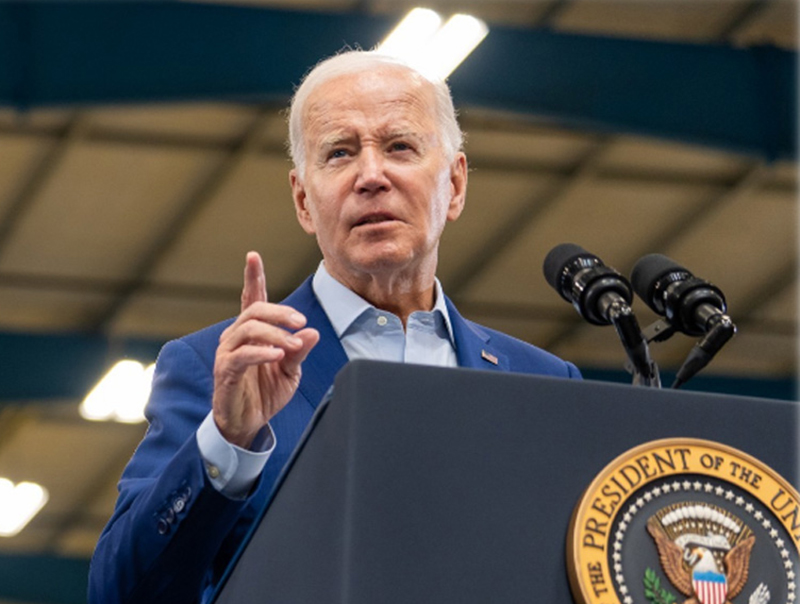
'Don't support Taiwan's independence': Biden affirms U.S. stance after Lai Ching-te’s election, who vowed to counter China
Washington: President Joe Biden has said that the United States does not support the declaration of independence by Taiwan after the country's voters snubbed China and gave the ruling party a third presidential term, media reports said.
Lai Ching-te, candidate of the ruling Democratic Progressive Party (DPP), won the Taiwan election held on Saturday, January 13.
Despite pressure from China to reject the leader of the ruling party, who vowed to protect the island from threats and intimidation from mainland China, the voters decided to elect him.
"We are determined to protect Taiwan from China's continued threats and intimidation," Lai said during a press conference.
He also announced his intention to maintain the status quo in the Taiwan Strait and use dialogue instead of confrontation "to confidently continue exchanges and cooperation with China."
The US, which is Taiwan's strongest military partner, said it does "not support independence' of Taiwan. "We do not support independence..." US President Joe Biden was quoted by Reuters as saying when asked for a reaction to Saturday's elections.
In the past, the United States had committed to supporting whichever government comes into power. Demonstrating solidarity with the government,
President Biden intends to send an informal delegation to the self-governed island, according to a senior official from the Biden administration.
A US delegation comprising former National Security Advisor Stephen Hadley and former Deputy Secretary of State James Steinberg, will travel to Taiwan on Sunday, the American Institute in Taiwan (AIT) said.
The AIT serves as the United States' de facto representation in Taiwan.
In 1979, the United States shifted its diplomatic recognition from Taipei to Beijing and has consistently stated its opposition to a formal declaration of independence by Taiwan. Nonetheless, the U.S. maintains informal relations with the self-governed island and serves as its primary supporter and arms provider.
Beijing, not having ruled out the use of force to reunify Taiwan under its authority, is concerned that Lai might announce the formation of a Republic of Taiwan, a step that Lai has asserted he will not take.
Biden has previously upset the Chinese government with statements that seemed to imply the United States would come to the defence of Taiwan in case of an attack, departing from the traditional U.S. stance of "strategic ambiguity."
His remarks on Saturday seem to be an attempt to reassure Beijing.
Despite this, Washington issued a warning shortly before the polls opened, stating that it would be deemed "unacceptable" for "any" country to interfere in the election.
A Chinese foreign ministry spokesperson said on Sunday that the U.S. State Department's statement on the election in China's Taiwan region seriously violates the one-China principle and the three China-U.S. joint communiqués.
It goes against the U.S.' own political commitment of maintaining only cultural, commercial, and other unofficial relations with the Taiwan region, and sends a gravely wrong signal to the "Taiwan independence" separatist forces, the spokesperson said.
"We strongly deplore and firmly oppose this, and have made serious representations to the U.S. side," the spokesperson said.
The Taiwan question is at the very core of China's core interests and the first red line that must not be crossed in China-U.S. relations. The one-China principle is a basic norm in international relations, a prevailing consensus among the international community, and the political foundation of China-U.S. relations, according to the spokesperson.
(With UNI/Sputnik inputs)
Support Our Journalism
We cannot do without you.. your contribution supports unbiased journalism
IBNS is not driven by any ism- not wokeism, not racism, not skewed secularism, not hyper right-wing or left liberal ideals, nor by any hardline religious beliefs or hyper nationalism. We want to serve you good old objective news, as they are. We do not judge or preach. We let people decide for themselves. We only try to present factual and well-sourced news.







